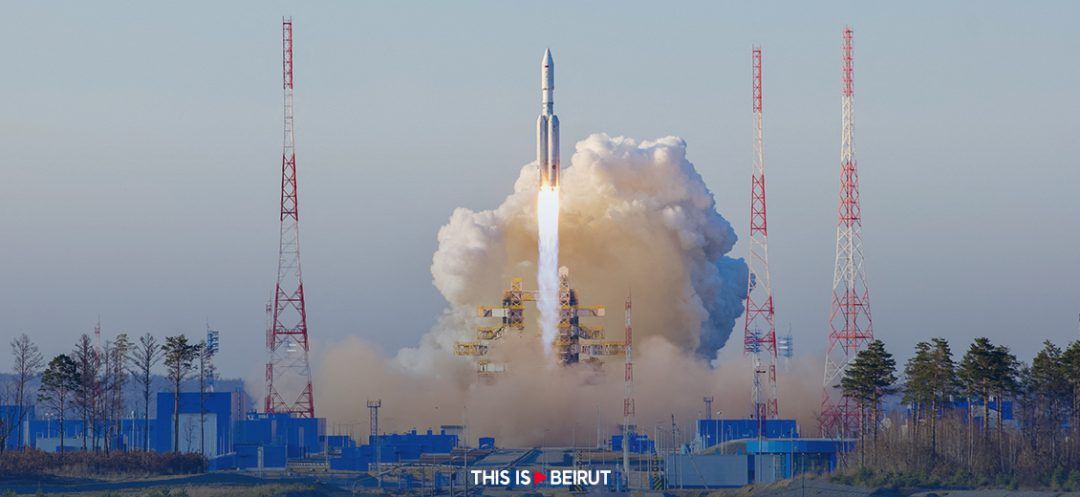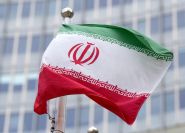- Home
- Middle East
- Pentagon Wary of Newly-Launched Russian Space Weapon

©(Photo by Handout / ROSCOSMOS / AFP)
Russia has launched a likely space weapon and deployed it in the same orbit as a US government satellite, the Pentagon said.
"Russia launched a satellite into low Earth orbit that we assess is likely a counter-space weapon presumably capable of attacking other satellites in low Earth orbit," Pentagon spokesman Air Force Major General Pat Ryder told a press briefing late Tuesday.
Ryder added that Washington would continue to monitor the situation and was ready to protect its interests.
Kremlin spokesman Dmitry Peskov declined to comment when asked about reports that Moscow had launched a space weapon.
Earlier Tuesday, Moscow accused the United States of seeking to weaponize space after Washington joined other members of the Security Council in voting down a Russian non-proliferation resolution at the United Nations.
"They have once again demonstrated that their true priorities in the area of outer space are aimed not at keeping space free from weapons of any kind, but at placing weapons in space and turning it into an arena for military confrontation," Russian foreign ministry spokeswoman Maria Zakharova said in a statement.
The world powers have traded accusations over weaponizing space in recent months. They have proposed rival non-proliferation resolutions at the UN as part of the spat.
Russia vetoed the US initiative last month, while Moscow's proposal failed after receiving only seven votes in support, with seven against and one abstention, on Monday.
US envoy Robert Wood said Russia's proposal, which called on all countries to "take urgent measures to prevent for all time the placement of weapons in outer space," was a distraction and accused Moscow of "diplomatic gaslighting."
He said that Russia's "likely" counter-space weapon was "presumably capable of attacking other satellites in low Earth orbit."
In February, the White House said Russia was developing an anti-satellite weapon, the existence of which was confirmed after lawmakers warned of an unspecified but serious threat to national security.
Both countries ferry each other's crew members to and from the International Space Station (ISS), where their astronauts are jointly stationed.
The space weapon spat between Moscow and Washington resurrects the specter of space being militarized despite the 1967 Outer Space Treaty which forbids countries from deploying "any objects carrying nuclear weapons or any other kinds of weapons of mass destruction" into orbit or outer space.
With AFP
"Russia launched a satellite into low Earth orbit that we assess is likely a counter-space weapon presumably capable of attacking other satellites in low Earth orbit," Pentagon spokesman Air Force Major General Pat Ryder told a press briefing late Tuesday.
Ryder added that Washington would continue to monitor the situation and was ready to protect its interests.
Kremlin spokesman Dmitry Peskov declined to comment when asked about reports that Moscow had launched a space weapon.
Earlier Tuesday, Moscow accused the United States of seeking to weaponize space after Washington joined other members of the Security Council in voting down a Russian non-proliferation resolution at the United Nations.
"They have once again demonstrated that their true priorities in the area of outer space are aimed not at keeping space free from weapons of any kind, but at placing weapons in space and turning it into an arena for military confrontation," Russian foreign ministry spokeswoman Maria Zakharova said in a statement.
Rival UN Motions
The world powers have traded accusations over weaponizing space in recent months. They have proposed rival non-proliferation resolutions at the UN as part of the spat.
Russia vetoed the US initiative last month, while Moscow's proposal failed after receiving only seven votes in support, with seven against and one abstention, on Monday.
US envoy Robert Wood said Russia's proposal, which called on all countries to "take urgent measures to prevent for all time the placement of weapons in outer space," was a distraction and accused Moscow of "diplomatic gaslighting."
He said that Russia's "likely" counter-space weapon was "presumably capable of attacking other satellites in low Earth orbit."
In February, the White House said Russia was developing an anti-satellite weapon, the existence of which was confirmed after lawmakers warned of an unspecified but serious threat to national security.
Both countries ferry each other's crew members to and from the International Space Station (ISS), where their astronauts are jointly stationed.
The space weapon spat between Moscow and Washington resurrects the specter of space being militarized despite the 1967 Outer Space Treaty which forbids countries from deploying "any objects carrying nuclear weapons or any other kinds of weapons of mass destruction" into orbit or outer space.
With AFP
Read more



Comments